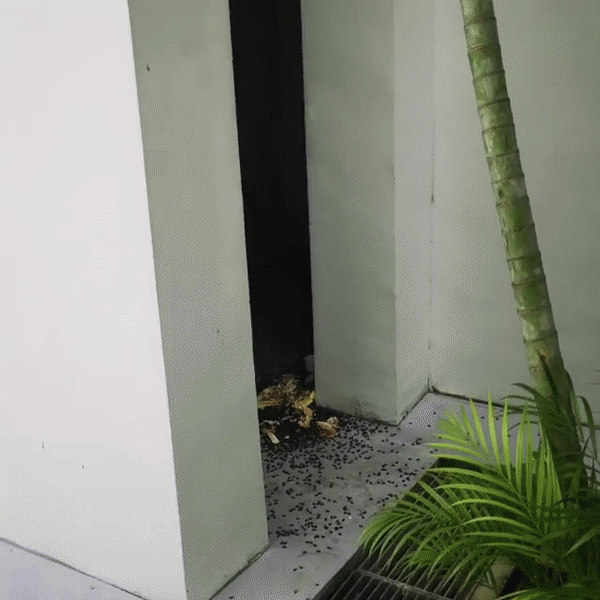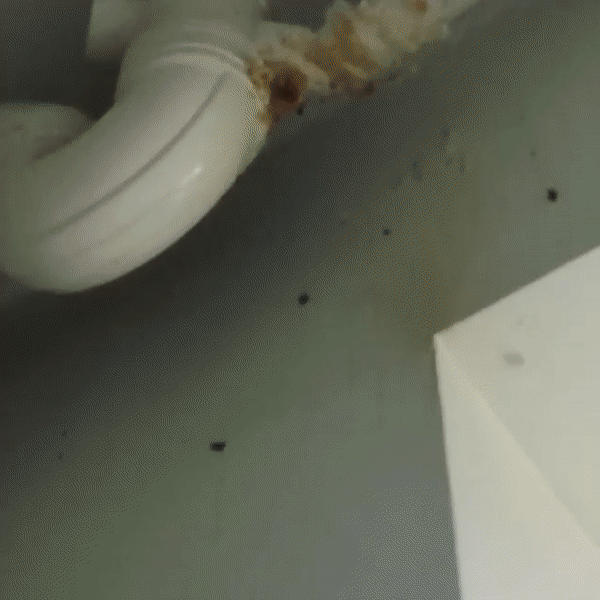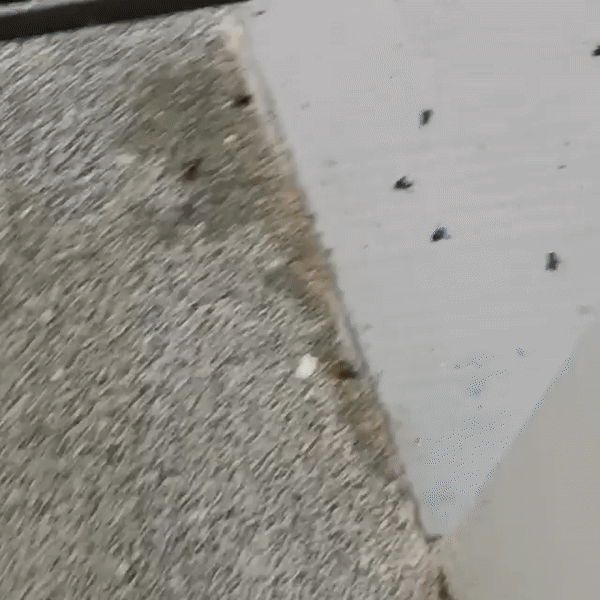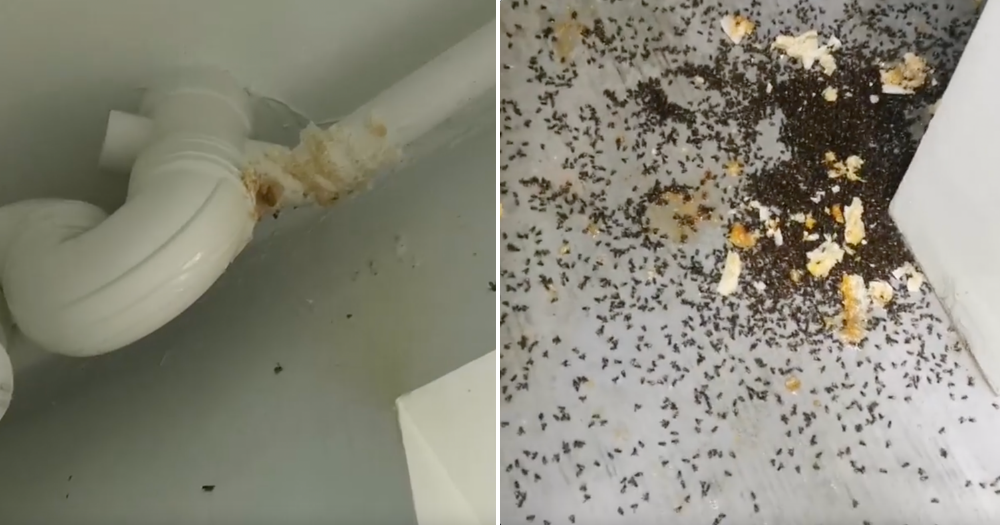Follow us on Telegram for the latest updates: https://t.me/mothershipsg
A beekeeper in Singapore called out an extermination of a colony of bees at a Sengkang HDB flat recently.
He was on the way to remove them humanely but failed to reach in time to do so.
Beekeeper alerted to remove bees humanely
Xavier Tan, a beekeeper from Nutrinests, shared on social media some videos of a beehive being destroyed.
Tan told Mothership that he first received a call from a resident on July 5 enquiring about his bee removal services.
The resident shared that she had also called the National Parks Board (NParks) and the Town Council. However, when Tan told her that the bees would likely be exterminated, she requested for Tan to head over to remove them humanely instead.
Tan headed over to 439C Sengkang West Ave, where the beehive was located, on the same day.
Unfortunately, a pest control company had already reached the location, and Tan arrived to witness the aftermath.
Beehive destroyed
Videos he shared show a worker spraying a can of pesticide at a dark corner of the ceiling, presumably where the beehive was hanging from.
The can was attached to the end of a long pole and the worker was wearing a pair of slippers.
 Video from Nutrinests
Video from Nutrinests
By then, a large number of bees had already died, and their carcasses, along with the remains of the honeycomb, were strewn on the floor.
 Video from Nutrinests
Video from Nutrinests
The worker could then be seen attempting to pick up some of the remains with a cloth or tissue.
Tan said that he observed the worker throwing away the larger pieces of honeycomb, but that the mess was left behind until a cleaner arrived.
 Video from Nutrinests
Video from Nutrinests
Town council: Beehive was a safety concern
Tan added that it was not possible for him to save any bees as he did not know which individuals had already been "contaminated" by the pesticide.
He also met the resident who initially informed him about the beehive. The resident, he said, felt "so guilty" after witnessing the aftermath of the extermination.
Tan said that the resident believed NParks or the Town Council would have notified her before the extermination.
In response to Mothership's queries, Ang Mo Kio Town Council clarified that they were actually notified about the beehive by their Pest Control Operator (PCO) on July 5, not by the said resident.
By 1:30pm on the same day, the PCO, a NEA registered vector control operator, had removed the beehive.
The area was also thoroughly cleaned up after the bee hive was removed.
The town council emphasised that residents' safety is their top priority, adding that a beehive in a common area "could pose a danger to residents".
"Therefore, we would act immediately to prevent any resident from getting stung by the bees," it said.
Contact beekeepers to remove hives instead
In a Facebook post, Tan urged people to save and conserve bees.
Should members of the public spot a beehive and wish to remove it, they can contact Tan from Nutrinests, or other beekeepers who offer humane bee removal services such as John Chong from BEE AMAZED Garden, or Clarence Chua from The Sundowner.
Tan also urged the authorities to "review" their policies, and added that he is willing to work with them to resolve matters involving bees in a humane, safe and sustainable manner.
NParks, on the other hand, only handles beehives in parks, gardens and nature reserves, and not those in residential estates.
Although there exists a certain amount of fear towards bees due to their ability to sting, bees are actually extremely important to the ecosystem, and play key roles as pollinators of plants.
If members of the public spot a beehive in a park, it's best to keep a distance and leave the bees alone. You can also notify NParks at 1800 471 7300.
For more information about steps to take if you've been stung by a bee or wasp, check out NParks' advisory here.
Related stories
Top photo from Nutrinests
If you like what you read, follow us on Facebook, Instagram, Twitter and Telegram to get the latest updates.

